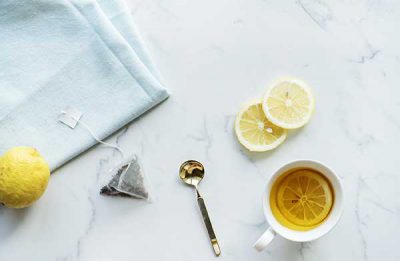When it comes to prolonging the life of your marble or granite benchtop, there are a few Do’s and Don’ts to taking care of its surface.
To prevent staining on the surface of your benchtop, coasters and placemats are recommended to protect the marble from any stains left by drinking glasses or dishes’. If any spills do occur, avoid leaving them for a long period to reduce staining; when cleaning up any spills, steer clear of chemical products as the acidity will strip the benchtop’s glossy finish over time. Most marble and granite benchtops are sealed with penetrating sealer, to prevent stains from absorbing into the stone. Therefore, periodic resealing the surface is recommended to keep it looking as good as new.
Marble and granite can be acid sensitive; therefore, acidic substances such as lemon or tomato juices should not be used directly on the benchtop’s surface. Chemical cleaning products and other acidic substances, if used on the surface, will cause it to etch; the surface will change texture and lose its glossy finish. To maintain your benchtop, clean the surface regularly with warm soapy water and a soft cloth.
Removing tougher materials may require more than just a wipe over with a warm soapy cloth, such as:
- Chewing gum: place an ice block over gum until it hardens, then remove gum from the surface and wipe the area over to remove any residue.
- Nail polish: wipe up the excess immediately then wipe over the area with a damp cloth with some nail polish remover. Once the stain is removed, wipe up the nail polish remover with some soapy water quickly, as acetone can cause etching.
- Glue: Dampen a cotton ball with some acetone and moisten the glue with the acetone to soften it. Using a plastic putty knife or credit card, gently scrape off the glue and wipe over the area with a damp cloth.
 Cutting directly on the marble or granite surface may not cause immediate damage, however using a cutting board is still recommended. Over time, repeated use of a knife in the same place eventually begins to wear the polish; as well as blunt your knives. The benchtop will become more susceptible to staining and acid corrosion without the polish there to seal the surface.
Cutting directly on the marble or granite surface may not cause immediate damage, however using a cutting board is still recommended. Over time, repeated use of a knife in the same place eventually begins to wear the polish; as well as blunt your knives. The benchtop will become more susceptible to staining and acid corrosion without the polish there to seal the surface.
Marble and granite benchtops should not be subjected to excessive weight, stress or extreme temperatures. Both surfaces have the potential to scorch and may even form hairline cracks from extreme thermal shock. To prevent this kind of damage from occurring, never place hot pans or pots directly on to the benchtop. Downward pressure on the benchtops’ weak areas (i.e. front and back of the sink and cooktop), may also cause hairline cracks or breakage; avoid sitting or climbing on your benchtop.
Learn more about Natural vs. Engineered stone for bench-tops.

